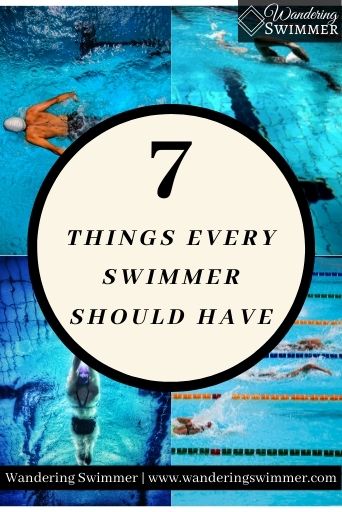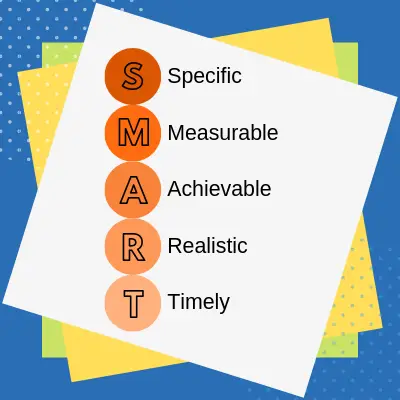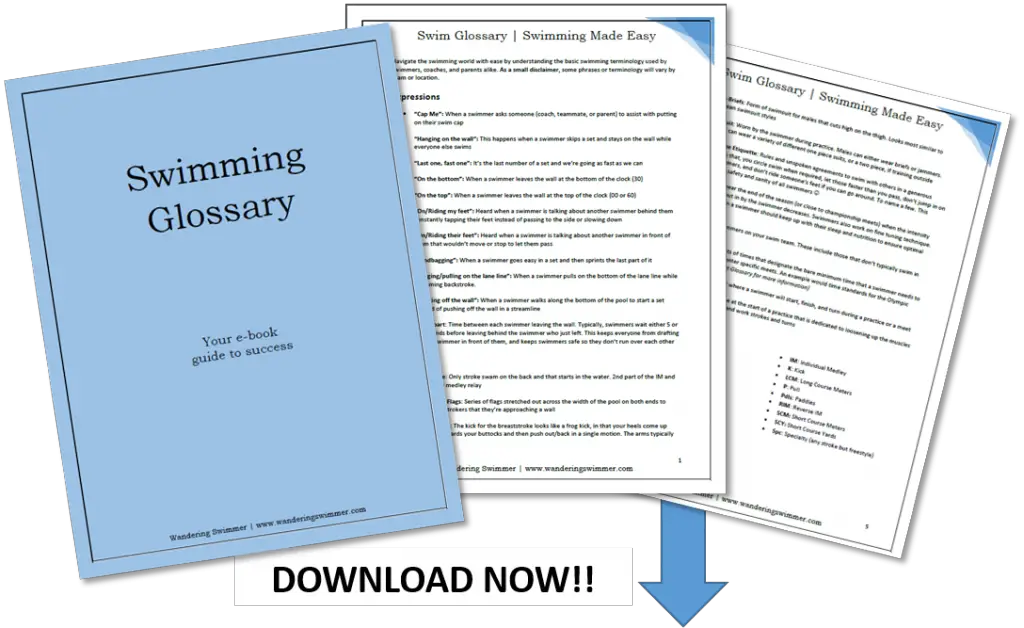Aside from the obvious needs of a swimsuit and towel, what are some absolutes that every swimmer should have? What do successful swimmers have that others don’t?
While this can vary by each swimmer, here are 7 things we think every swimmer should have.
Related article: What Equipment do You Need to Start Swimming?
Disclosure: This post may contain affiliate links, meaning we earn a small commission at no cost to you if you purchase something through one of our links. As an Amazon Associate, we earn from qualifying purchases. Please check out out disclosure page for more information.

Things Every Swimmer Should Have
1. Good pair of goggles
Never underestimate the power of a good pair of goggles. Every swimmer wishes for goggles that never fog, leak, or fall off at the start. If you find a pair that meets all those criteria, you better stock up!
A good pair of goggles will help make workouts, practices, and meets more tolerable. Not just in terms of comfort for longer races, but also visually.
You never realize how badly your goggles fog until you break in a new pair. And you never realize how much time you spend cleaning your goggles until you don’t to do so anymore!
Related article: 7 Reasons to Wear Goggles When you Swim
Having clearer goggles can make the difference in a race. Giving you the ability to see across the pool instead of just the lane over.
It can also improve your safety in the pool. Clean goggles allow you to see the person in front of you or when someone is passing. Crashing into someone because you couldn’t see is never fun for anyone.
Wear glasses? Some brands make prescription goggles so you can see in the water even after you take off your glasses. They allow you to see the clock easier and keep yourself on track with your intervals.
Related article: How to Pick the Right Swim Goggles
And, if you’re swimming outside, a good pair of goggles to protect your eyes is critical. For outdoor swimming, you’ll want to invest in a good set of mirrored goggles.
2. Comfortable Fins that don’t blister
Much like a good pair of goggles, every swimmer should have a comfortable set of fins. Preferably, ones that don’t rub and give you blisters.
When used properly, fin work can help correct and improve your kick. If you have a pair of fins that don’t fit properly or rub, you’re more likely to kick them off halfway through the set. Or, you won’t wear them next set because your feet hurt too much.
Skipping sets with fins takes away from your training. In that, you don’t develop and strengthen your kick.
Fins also help build the muscles in your legs. From your thighs and calves, down to the strength in your ankles. If you constantly take to the back of the lane because you can’t (or won’t) wear fins, then you’re not improving.
Instead, take the time to find a pair of fins that you can tolerate for long periods of time. If that doesn’t work, look into fin socks.
Related articles (coming soon)
I personally use Dakine fin socks, because I have yet to find a set of fins that won’t rub. And I can say that they work and are well worth the investment! 🙂
3. Paddles
While fins work your kick and leg muscles, paddles will work on your stroke and arm muscles. They’ll make you feel the water and certain ones will help you correct an incorrect pull.
Paddles such as FINIS Freestyler paddles and Arena Fingertip paddles work exceptionally well in these cases. They’re designed to help target the catch and pull of your stroke. If you’re not catching the water correctly, you’ll feel it in your pull!
When used correctly, they’ll help you hone in on the feeling of pulling water. So that when they do come off, you should know where to place your hand to get the best catch.
A lot of swimmers complain that they go slower when they use paddles. Because of this, they avoid using them and never take the chance to correct their stroke. If you find yourself going slower when wearing paddles, it’s a sign that you’re not pulling correctly. Reevaluate your technique or speak with your coach.
Paddles also have the added benefit of strengthen the muscles in your arm. From the forearm up to your shoulder. If you don’t feel a burn in at least your forearms, you’re doing something wrong 😉
To get the most of your paddles and practice, try sculling with them. You should feel the water easier with your paddles.
4. Ear drops
It probably doesn’t cross your mind, but every swimmer should have ear drops. Ear drops help dry out the residual water left over from practice. It has the added benefit of balancing out the PH in the ear canal as well.
Personally, I keep bottles at both work, home, and in my travel bag. I use them after every practice and even after the shower.
Why?
Ear drops are the best way to help prevent swimmer’s ear.
Swimmer’s ear is the best way to miss practice. Which yes, you don’t want to do! Swimmer’s ear can also turn incredibly painful if not managed.
5. Food
Let’s be honest here. Swimmers eat. A lot.
It’s why I think every swimmer should have food with them when their either at school, work, or traveling. And especially after practice.
Ideally, swimmers should eat a small protein-packed snack on their way home from practice before their main meal. This aids with muscle recovery and growth. And, it can be as simple as a protein bar or a recovery drink.
Be wise with what and when you eat before practice or a meet. Some things don’t taste as good coming back up as they do going down 😉 However, you should always make time to eat something before a practice or meet.
Trying to swim on an empty stomach is like trying to drive a car with no gas. It won’t go anywhere and neither will you!
Yes, I speak from experience on this. I used to avoid eating anything before morning practice. And then I spent the whole practice wondering why I could barely finish a 50. Struggling through practice or a meet with little to no energy is wasted time and you don’t do yourself any favors.

6. Accountability partner
Every swimmer should have an accountability partner. While it’s not something tangible, such as fins or paddles, it’s just as important.
An accountability partner is someone who helps you keep to the goals that you set. They ensure that you’re not taking the easy route at practice or skipping on nutrition. Or, they could be someone who helps push you at practice or in dryland. The person you chase in the lane next to you.
Having an accountability partner keeps you going even when practices turn difficult. Or when you’re not dropping times and feel like quitting.
In some ways, they’re your cheerleader. But they’re also your encourager and enforcer. That person who makes you stay honest to yourself.
Yes, you should have the indepence to motivate yourself. At times though, you hit rough patches where you just want to quit. That’s when your accountability partner steps in. They help keep you on the path you set for yourself.
They’re not there to do the work for you or make it easier. Instead, they’re that soft – or hard – nudge back on track.
I have a teammate like this at practice with whom we’re each other’s accountability partner. We check in after sets to see if we hit our times or if we worked on our breakouts. It helps push us and stay honest to ourselves at the same time.
7. Goals
If a swimmer doesn’t have goals, then you’re not really swimming. Setting goals gives you something to aim and strive for. It’s what keeps you going to practice each day.
More than that, it turns chasing dreams into a reality.
You can always dream about where you want to go. But if you don’t make that your goal and set the process to get there, they’ll always just be that. They’ll always just be dreams that you chase.
Both in swimming and in life, you’ll find more success for yourself if you set detailed, time and performance based goals. I speak from experience as both a swimmer and someone who uses goal setting at work. For both myself and my employees.
Learning to set goals in swimming sets you up for success in swimming and in life. It’s why I believe that every swimmer should have goals.
And not just overall goals. But goals for each season and each year. Revisit last years goals and see where you failed or succeeded. This helps you correct past mistakes and turn them into future victories.

In Closing
While these items can help aid you in reaching success, they don’t guarantee it. You still have to put in the work and effort to find victory. No one can offer you a magical cure all to get you where you want to go.
Successful swimmers use the above mentioned items in tandem with their training. But their overall success? It comes from within and a drive to get there.
While these suggestions won’t do the job for you, I believe they’ll help get you on the right path. All that’s left is for you to put it all into practice and keep working hard!
As always, to happy swimming!
-Chevron
Related Content:
5 Reasons to Own a Shammy: While a shammy may look small, it wins big on what it offers swimmers. Quick-drying and thin, you might find yourself reaching for it first over a towel.
First Day of Swim Practice (And What to Expect): Your first day of swim practice can feel daunting. Knowing what to expect at swim practice can take away the unknown and set you up for success on day one!

Want to Improve at the Pool?
Join swimmers and swim parents to receive my free newsletter and receive a free Swimming Glossary e-book as a thanks!
Every month you’ll receive tips and coaching to help you find success at the pool.
